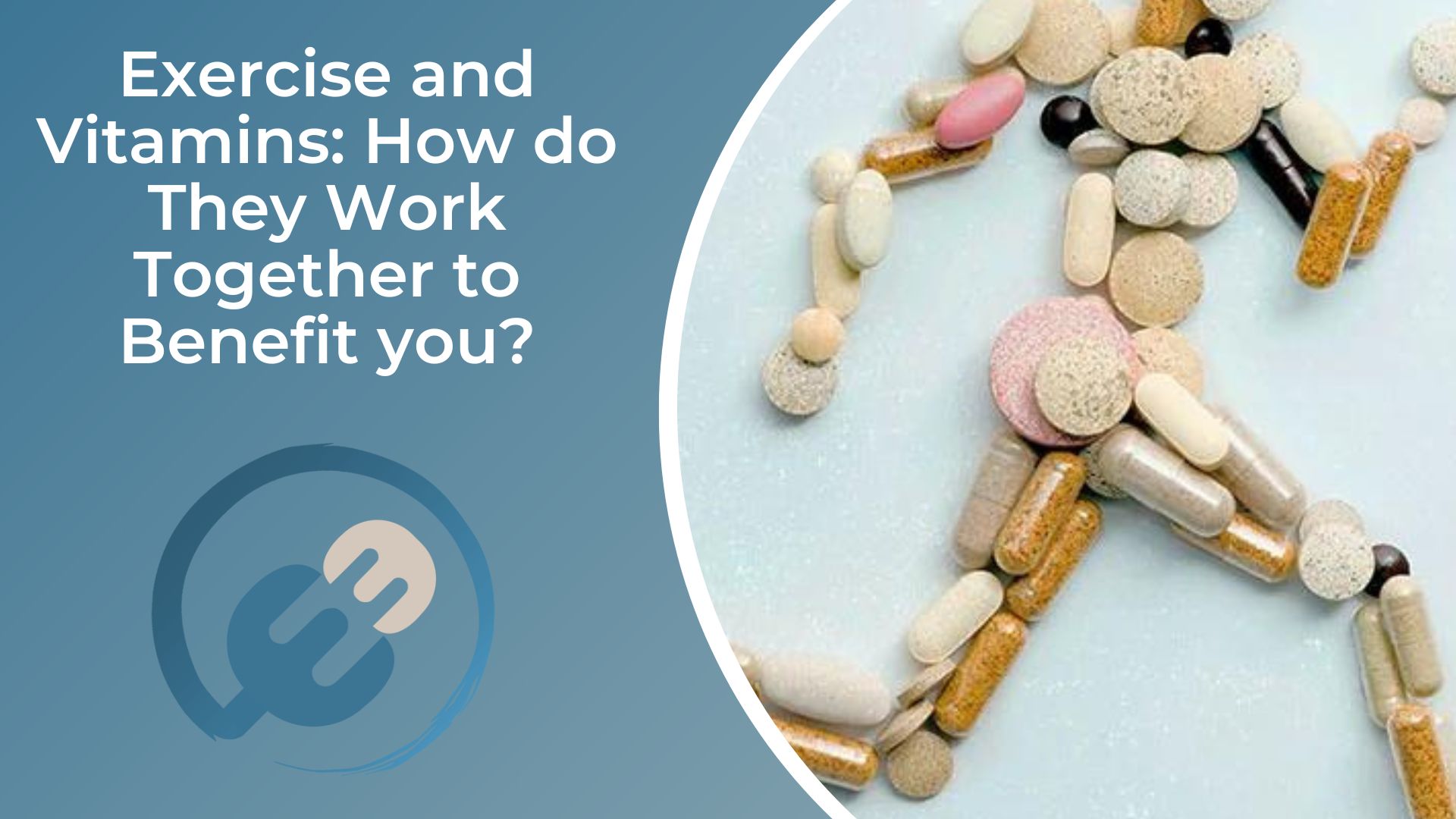Vitamins are micronutrients that the body needs to perform several regular tasks.
However, since our bodies cannot generate these micronutrients, they must be obtained from the food we consume. Vitamins are chemical compounds that can be categorized as either fat-soluble or water-soluble.
Think of your body as an efficient machine that is continuously striving to keep you healthy and active. But for it to operate at its optimum, like any machine, it needs fuel.
Exercise and vitamins can help with that because they are both crucial elements that work together to keep your body functioning properly.
Exercise makes your heart beat and blood flow, which helps your muscles and organs receive oxygen and nutrients. It can even aid in the prevention of chronic diseases like diabetes and heart disease.
It makes you feel better and reduces stress. However, exercise also puts your body under stress, which causes muscular tissue to break down and depletes your energy reserves.
Exercise and vitamins work as a powerful team to help you feel your best and maintain long-term health. Don’t forget to refuel with the proper vitamins and nutrients to support your body’s requirements the next time you visit the gym or go for a run
What are the Benefits of Vitamins During Exercise?
The importance of vitamins in maximizing your activities cannot be overstated, regardless of whether you enjoy working out on a treadmill or a home exercise bike. You can find out more about home exercise bikes on www.experteasy.com.au, below are some of the benefits of having the right levels of vitamins in your body in relation to exercise;
- Increased Energy: The B vitamins, such as thiamine, riboflavin, niacin, and pantothenic acid, aid in the conversion of food into energy. These vitamins can boost energy levels during exercise, enabling you to exert more effort and push yourself for a longer period.
- Better immune system: Antioxidants including vitamins C, E, and A guard your body against harm from free radicals. The body creates more free radicals during exercise, which can lead to oxidative stress and impair the immune system. Consuming meals high in these vitamins can help boost your immune system and lower your chance of getting sick after a long exercise.
- Improved Muscle Repair and Recovery: Vitamins B6, B12, and D are essential for muscle repair and recovery. Muscle fibers are injured during exercise, and these vitamins can aid in faster damage repair, lowering discomfort and enabling you to resume training sooner.
- Improved Mental Health: Vitamin D is crucial for maintaining a healthy brain and has been linked to a better mood and fewer depressive symptoms. Exercise by itself has the potential to enhance mental health, and when coupled with vitamin D, this potential is increased.
- Reduced Inflammation: Vitamins C and E, which are also anti-inflammatory, can aid in reducing inflammation brought on by physical exercise. By doing so, you may be able to avoid accidents and lower your chance of developing chronic inflammatory conditions like arthritis and heart disease.
- Stronger Bones: Vitamins D and K are essential for bone health because they facilitate the body’s absorption of calcium and other minerals required for the formation of strong bones. Consuming meals high in these vitamins and engaging in regular exercise both enhance bone health and help avoid fractures and osteoporosis.
- Enhanced Endurance: Vitamins B1, B2, B3, and B6 are necessary for the synthesis of ATP, the body’s main source of energy, and they aid in the conversion of food into energy. Consuming meals high in these vitamins can help you exercise longer and feel less fatigued.
- Improved Skin Health: Vitamins A, C, and E are essential for maintaining healthy skin and can guard against damage from UV radiation and other environmental causes. Along with eating meals high in these vitamins, regular exercise can also assist to promote skin health.
- Reduced Chance of Chronic Diseases: A balanced diet rich in vitamins and minerals can help lower the risk of developing chronic illnesses including diabetes, cancer, and heart disease. A nutrient-dense diet plus regular exercise can have a positive impact on one’s health. Regular exercise is also essential for illness prevention.
Conclusion
In conclusion, Vitamins play a crucial role in supporting the body during exercise. By consuming a balanced diet that includes a variety of nutrient-dense foods, you can ensure that you are getting the vitamins you need to perform at your best and achieve your fitness goals.
So, whether you’re a seasoned athlete or just starting your fitness journey, it’s important to prioritize your nutrition and make sure you’re getting the vitamins your body needs.
By doing so, you’ll not only improve your performance in the gym or on the field, but you’ll also be investing in your long-term health and well-being.



